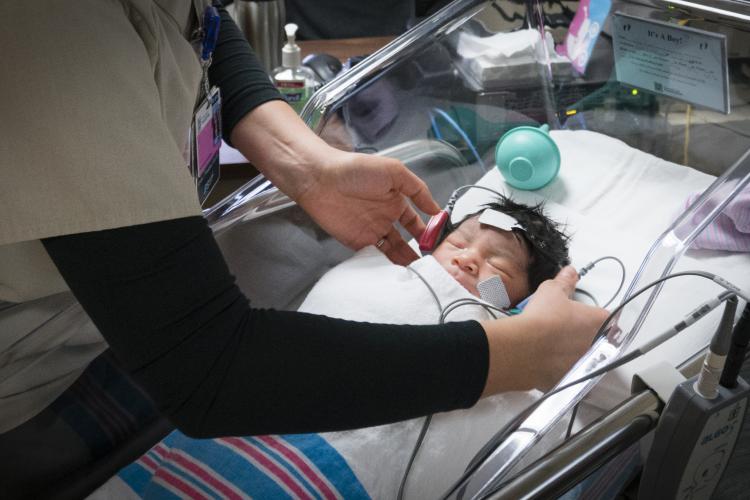
The Infant Hearing Screening Program at JPS passed certification review with an overall score of 100 percent and is rated a Distinguished Program by the Texas Department of State Health Services.
Distinguished programs are audited every two years and graded on eight metrics intended to ensure that all babies born in Texas have their hearing evaluated and are referred for treatment if hearing loss is detected.
Hearing loss is among the most common congenital anomalies among infants born in the U.S., affecting an estimated 3 out of every 1,000 babies, according to the American Academy of Pediatrics, which considers hearing impairment a “developmental emergency.” Children who can’t hear are at risk for delayed development in language, learning and speech, which can be avoided with early intervention.
Nearly 5,000 babies are born every year at JPS. Three hearing screeners evaluate each and every newborn before they go home. The test is noninvasive, involving earphones and three leads similar to those used in an electrocardiogram (EKG). As sounds are emitted through the earphones, a computer records the response of nerves involved in hearing.
For the hearing screener, “it’s harder than it sounds,” said Raquel Armstrong, manager of the Neonatal Intensive Care Unit (NICU) and Infant Hearing Screening Program. “There’s finesse to it. The baby has to be quiet and calm. It can take 30 seconds, or it can take an hour and a half.” When babies fail the test, it’s often due to nothing more than fluid in their ears, Armstrong said, and they’re screened again to check the initial result.
Babies who don’t pass hearing screening are referred to Cook Children’s Medical Center for follow-up evaluation with a specialist.
